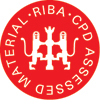When Adjudication was first introduced, it was seen as a low cost, quick fix method of resolving construction disputes. However, over the 17 years since its introduction, it has developed its own wealth of legal case law and numerous formal procedures that require strict adherence. Swift it might be, but fall foul of the procedure and it could have dire financial consequences.
Part 1 of the programme will deal with the start of the Adjudication, the appointment of the Adjudicator and the Referral Notice and timetable.
Key learning points:
- Whether Adjudication is applicable or appropriate for a contract
- How to draft the Notice of Adjudication
- Guidance on appointment of the Adjudicator
- How to draft the Referral Notice
- The strict time limits involved
About the contributors
Hay & Kilner Solicitors is one of the leading law firms in Newcastle upon Tyne. They offer a complete commercial and personal legal service to clients – locally, nationally and overseas.
Graham Sutton is a Construction Law specialist at Hay & Kilner with 30 years’ experience in both contentious and non-contentious matters including Adjudication, Alternative Dispute Resolution, Collateral warranties, Development agreements, Professional advisers’ agreements and Professional negligence. He has represented employers, contractors, subcontractors and consultants in all forms of dispute resolution procedures. Graham is named as a “Leading individual” in his field in Chambers Guide UK, an independently researched guide to the legal profession.
Rodney Jones is a Partner at Hay & Kilner, in the Commercial Disputes team and has many years of broad experience in a range of litigation matters. He is committed to exploring forms of alternative dispute resolution, including mediation, to find the optimum solutions for his clients.
Jan Rzedzian is a trainee solicitor at Hay & Kilner and assists on matters including Adjudication, Alternative Dispute Resolution, Collateral warranties, Development agreements, Professional advisers’ agreements and Professional negligence.
 Disclaimer: NBS TV programmes are the intellectual property of RIBA Enterprises and it shall be a breach of this right to copy, or in any way exploit commercially or show in public any of the programmes without the express permission of RIBA Enterprises.
Disclaimer: NBS TV programmes are the intellectual property of RIBA Enterprises and it shall be a breach of this right to copy, or in any way exploit commercially or show in public any of the programmes without the express permission of RIBA Enterprises.
